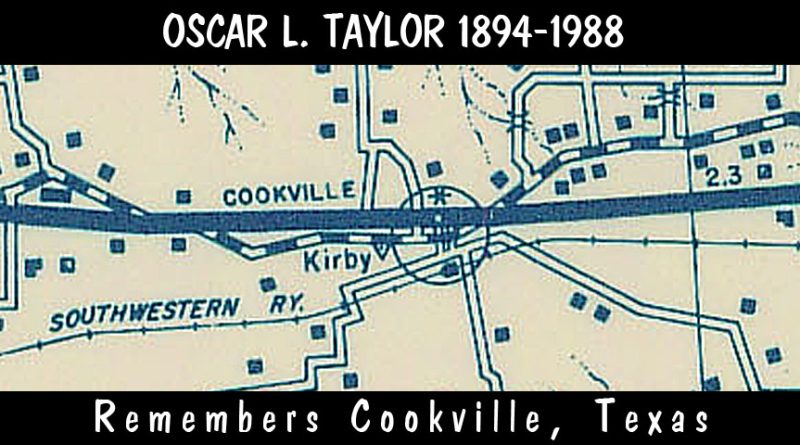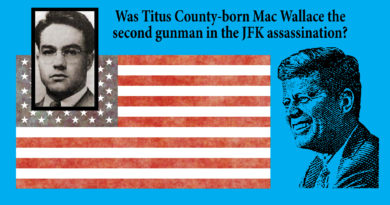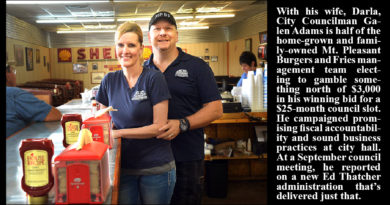OSCAR L. TAYLOR 1894-1988
Special to the journal
Synopsis by Etta Ray Case from an interview with Oscar Leonodis Taylor in 1979
Editor’s Note: Oscar L. Taylor’s O. L. Taylor & Co. General Merchandise store was broken into during the 1925 robberies of Cookville.
Mr. Warren Swan and Etta Ray Case went to Cookville and visited with Oscar Leonodis Taylor. Mr. Taylor has been a businessman in Cookville all his adult life. When we arrived, he way sitting under a big shade tree shelling beans. He looked so comfortable we decided to sit outside for our talk.
Oscar Taylor was born in Titus County October 21, 1894. He is proud of the fact that he grew up in a Christian home and has tried to live his life as a good Christian. He has been happily married for 65 years and he and his wife, Hazel Phillips Taylor had two boys.
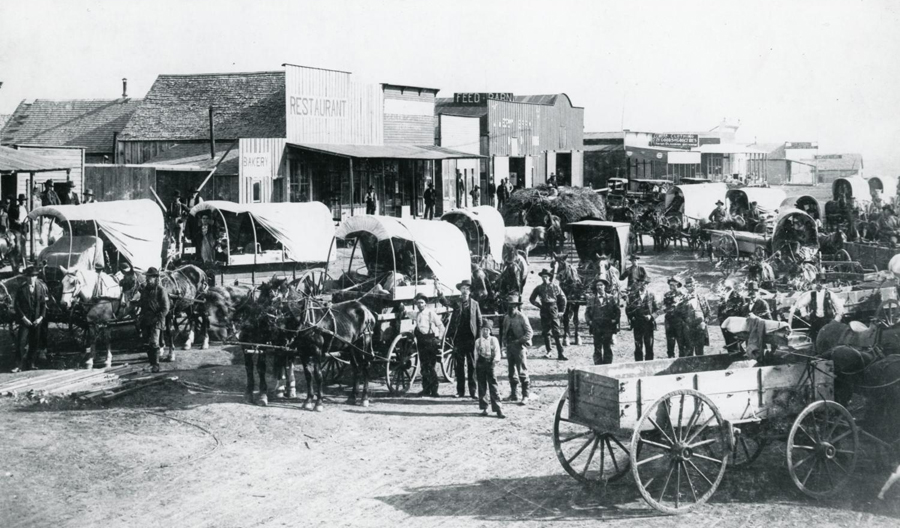
Mr. Taylor’s father, James Thomas “Jim” Taylor and uncle moved their families to Arapaho, Oklahoma in 1900 in two wagons. He remembers crossing the Red. River on a ferry. It took 28 days to travel from Arapaho to Cookville.
The reason they were moving war so Oscar’s daddy and uncle could keep his uncle, who was a liquor drinker out of trouble. They must have done a good job as he became a preacher.
After they got into Indian territory someone had to keep watch every night with a shotgun to keep Indiana from stealing their horses.
When they got to Arapaho they lived in a dugout which is a house built four-foot underground and four-foot above ground. They later built a house.
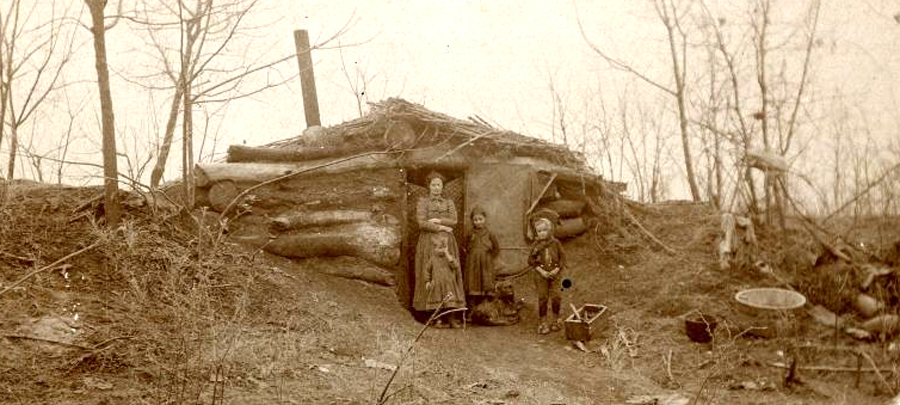
In a few years they again moved in a wagon to just outside Waco, Texas in McLennan County. This trip takes about 3 hours now from Cookville. At that time, it took 18 days to go from Arapaho to Waco.
He moved to Cookville i n 1904 and has lived there since.
He attended his first school in Arapaho. He remembers having to wear a blouse with lace. He says he wouldn’t be caught in one now. It made him look like a girl. When he started to school in Cookville the schoolhouse was one room with a side room on each side making a total of three rooms. Mr. Hudspeth and Mr. H. J. Flame were the heads of the school. Mrs. Knobley, Mrs. Lena Burford and Clemmy Butler taught.
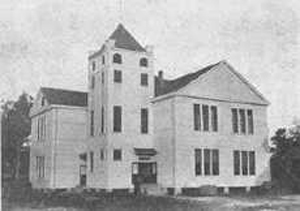
Mr. Taylor carried his lunch in a syrup bucket. He tells of sitting on a woodpile on the south side of the schoolhouse to eat his lunch so he could keep warm. For lunch he usually had biscuits and a jar of syrup and 2 sweet potatoes. About the only way to eat the syrup was to poke a hole in the biscuit with your finger and pour the syrup into that hole. He would save one of the sweet potatoes to eat on his way home from school. About the only advantage he can see in carrying your lunch in a syrup bucket is that it comes in handy when you get into a fight.
A lot of people brought their children to Cookville to school and boarded them out. This was because Mr. Flame was such a good teacher.
Mr. Taylor remembers when he was a boy he liked to keep busy. He shined shoes, swept out lawyer’s offices or any type of work to make a nickel. He remembers working in the field for 50 cents a day. He picked blackberries and sold them for 20 cents. He has a lot of blackberry bushes on his place now and he can sell them for $2 a gallon and he doesn’t have to pick them. I laughed when he told that now days, if you have anything to give away, you’ve got to process it and take it to them.
Oscar Taylor has seen a lot of changes in Cookville. He remembers when Cookville had one of the best markets in Northeast Texas. They shipped out watermelons, peaches, syrup and cotton by the carloads.
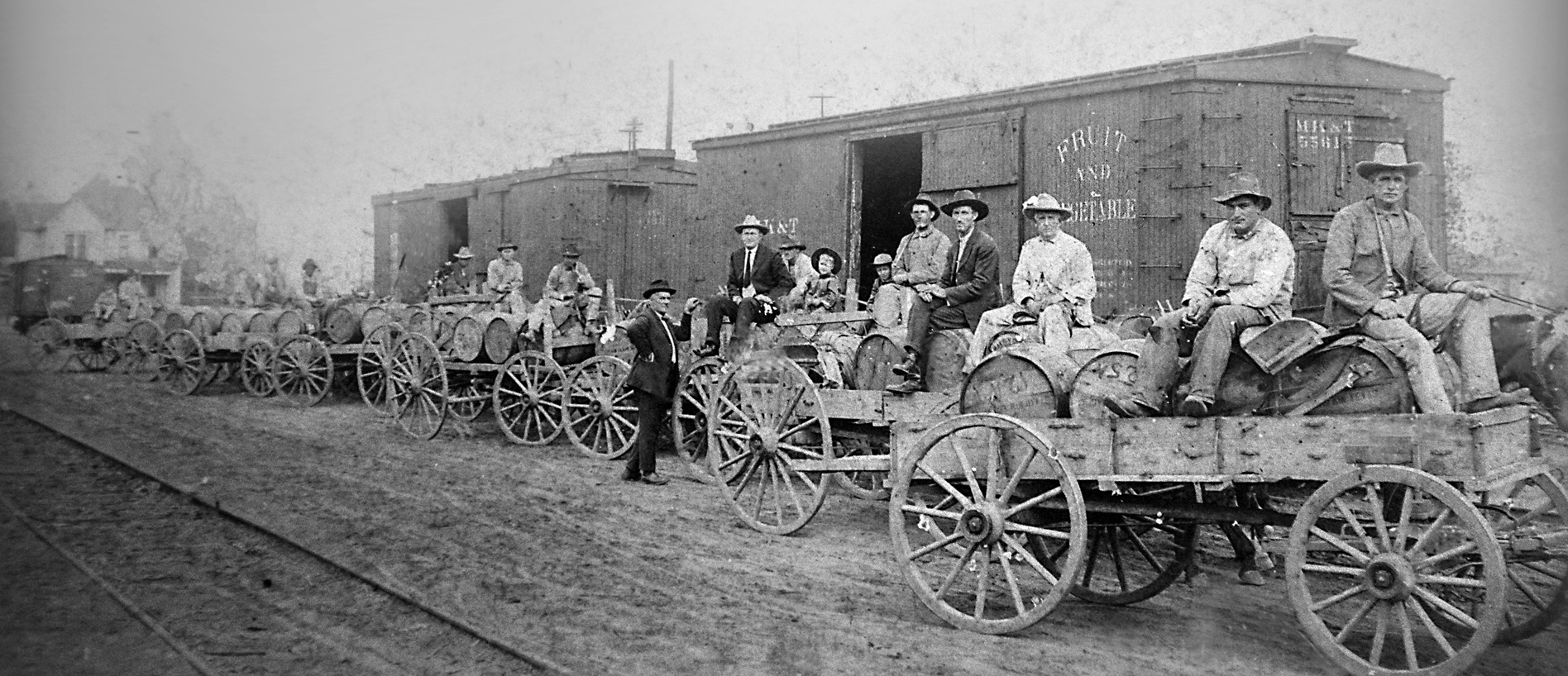
At one time Cookville was a thriving town with 4 doctors, 2 drug stores and several businesses. He can remember when there would be as many as 400 to 500 people still in town at 9:00 on a Saturday night. The railroad was the center of attraction. People would all go meet the trains. The town was built along the railroad tracks. Now there are only a couple of small country stores left.
He remembers the four doctors in Cookville. Dr. Johnson was a highly educated doctor and a wonderful doctor too. Some of the doctors didn’t have much education but they were good counselors. Mr. Taylor would haul the doctors around and the people that were paying the doctor would tell them he would see them tomorrow but the ones that didn’t pay he would tell them to call him.
Oscar Taylor and his wife went into the restaurant business in 1916 and stayed in the business life in Cookville until 1959.
He operated a restaurant from 1916 thru 1920. He would butcher a yearling calf every Friday for meat to be used in the restaurant. Some of his prices follow:
Ham & Eggs 25 cents
Steak Dinner 25 cents
Oyster Dinner 25 cents
Chili & Chili Soup 10 cents
1/4 Home Made Pie 5 cents
He bought crackers for 5 cents a pound.
He laughed and so did we when he told of the “ignorant thing” he did on Armistice Day during World War I. He was still in the restaurant business then in a two-story building. The Woodmen of the World held their meetings upstairs. Anyway, he went to the coal mine and got a keg of blasting powder. He then took some pipe and made dynamite with fuses. He shot the first one off right out in front of his restaurant and shrapnel went through the wall and almost hit his baby boy who was laying in a crib inside. He went around the building and shot the other one off. It broke out every window in the upstairs. He says that stopped the celebration.
He then, went into the dry good” and grocery business, and he stayed in this business until he retired. He used to deliver bread to any widow woman who called. His profit would be 2 cents a loaf. He says they now make 10 cents a loaf and no deliveries. He also said that it would take more than one wagon to haul off what his wife now gets for the same amount of money in a grocery cart.
He never made liquor during the liquor times but remembers buying sugar and barrels by the wagon load to sell out of his store. He was aware of 20 working stills in the area.
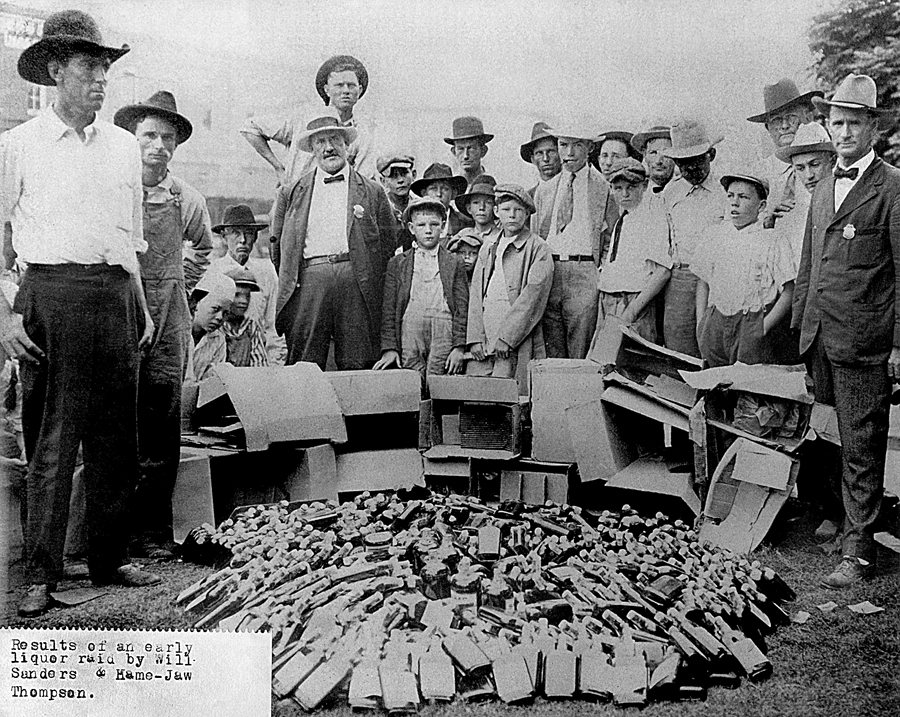
Mr. Taylor and his wife used to live in a big two-story house with 14 rooms. There have been 28 families live with them at different times over the years. Sometimes schoolteachers or depot agents. One family lived with them two years and one stayed a year, Mr. Taylor never charged, rent. He only asked that they do little odd jobs around the house.
Mr. Taylor is a great sports fan. He played baseball until he was 33 years old. He loves to hunt and fish. He remembers the first store bought baseball uniform he ever saw was when he watched the boys from Speer School play ball in Mt. Pleasant.
When he married, he and his wife would go to Mt. Pleasant to buy Santa Claus for Christmas. They had $5 to spend and they bought 25 cents presents. At that time there were 5 houses between Cookville and the pottery mill in Mt. Pleasant. They went in a buggy and the axles of that buggy would drag the ground in places. Mt. Pleasant didn’t have any pavement then.
Mr. Taylor then began to tell us of his good deeds which turned into good investments.
One man was a dope head and was sent to the Penntentiary for killing his son. Mr. Taylor let this man’s wife charge groceries for 2 years at his store. He then went and convinced the warden to let him out on parole. This man had 202 acres of land, and he gave Mr. Taylor the mineral rights on 101 acres of the land to settle his account. At the time the mineral rights were worth nothing. He leased them once for a dollar an acre. Then later he leased them for 25 dollars an acre and he has leased it again since then. He has received well over the amount owed him.
Then there was the time he was servicing a man’s Cadillac who had stopped for gas. It was freezing rain, and the man was drunk. He asked him where he was headed, and the man told him to Texarkana. Mr. Taylor took him home with him and the next morning they got to talking. This was when they were building the highway through Cookville. They had paid Mr. Taylor 25 dollars for a place to put sand and gravel. This man was connected with the road builder. They were finished with the highway then. He told Mr. Taylor he could have the sand and gravel that was left. Later there was some discrepancy with this man’s partners, but Mr. Taylor ended up with the gravel for 75 dollars. He then sold $750 worth of it for $1.50 a yard.
Another old boy was going to school at Commerce working his way to make a preacher. He came in the store right after dark one night. He was talking about his mother dying at Redwater and he was trying to get home. Mr. Taylor owned the Greyhound Bus Station then and he gave this man a ticket to Redwater.
Later this man sent Mr. Taylor some poems. Also, in World War 11 there was a radio program called “The Sweetest Story Ever Told” sponsored by the Myers Candy Company. There was a contest for people to send in stories. This man sent in the story of Mr. Taylor helping him. He asked if he won, that the prize be sent to Mr. Taylor. The radio station called Mr. Taylor and told him to be sure to listen to his program. So, he and his wife were listening, and he told his wife that was that old boy he had helped.
The radio station sent Mr. Taylor a $25 war bond. When this man travels near Cookville he always stops in to see the Taylors. Mr. Taylor feels that he has a lot of money for what little he’s invested.


